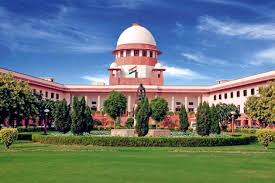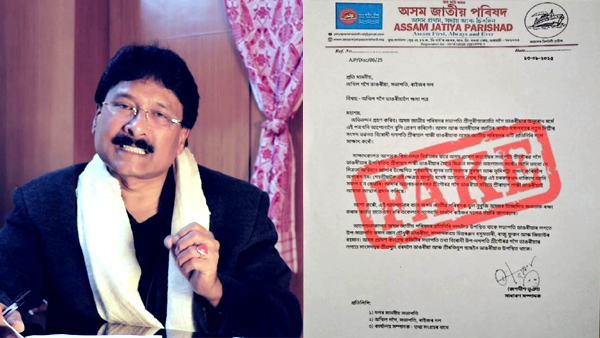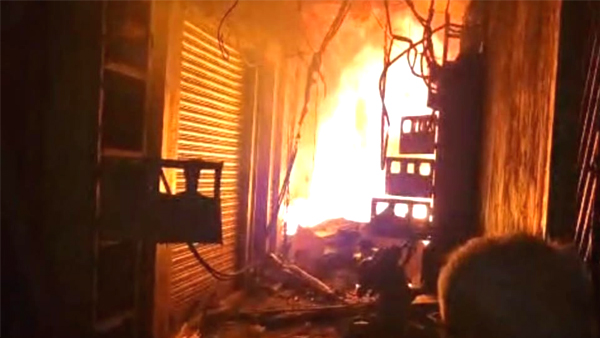New Delhi, Aug 16 : Imposing fixed timelines on governors and the president to act on bills passed by a state Assembly would amount to one organ of the government assuming powers not vested in it by the Constitution and lead to a “constitutional disorder”, the Centre has told the Supreme Court.
The Centre has said this in the written submissions filed in the Presidential Reference raising constitutional issues on whether timelines could be imposed for dealing with bills passed by a state Assembly.
“The alleged failure, inaction or error of one organ does not and cannot authorise another organ to assume powers that the Constitution has not vested in it. If any organ is permitted to arrogate to itself the functions of another on a plea of public interest or institutional dissatisfaction or even on the justification derived from the Constitution ideals, the consequence would be a constitutional disorder not envisaged by its framers,” it has said.
The note filed by Solicitor General Tushar Mehta has argued that the apex court imposing fixed timelines would dissolve the delicate equilibrium that the Constitution has established and negate the rule of law.
“The perceived lapses, if any, are to be addressed through constitutionally-sanctioned mechanisms, such as electoral accountability, legislative oversight, executive responsibility, reference procedures or consultative process amongst democratic organs etc. Thus, Article 142 does not empower the court to create a concept of ‘deemed assent’, turning the constitutional and legislative process on its head,” the note says.
The positions of the governor and president are “politically plenary” and represent “high ideals of democratic governance”. Any perceived lapses, the note says, must be addressed through political and constitutional mechanisms, and not necessarily through “judicial” interventions.
The perceived issues, if any, deserve political answers and not necessarily judicial, Mehta has submitted.
Challenging the decision of the apex court, Mehta has contended that Articles 200 and 201, which deal with the governors’ and president’s alternatives after receiving a state bill, deliberately contain no timelines.
“When the Constitution seeks to impose time limits for taking certain decisions, it specifically mentions such time limits. Where it has consciously kept the exercise of powers flexible, it does not impose any fixed time limit. To judicially read in such a limitation would be to amend the Constitution,” Mehta has said.
Despite the proliferation of checks and balances, there are certain zones that remain exclusive to either of the three organs of the State and cannot be trenched upon by the others, the note says, adding that the high plenary positions of governors and the president fall within that zone.
“The gubernatorial assent is a high prerogative, plenary, non-justiciable power which is sui generis in nature. Although the power of assent is exercised by the person at the apex of the Executive, however, the assent itself is legislative in nature.
“This blended and unique nature of assent clothes it with a constitutional character, whereby no judicially-manageable standards exist. Thus, despite the expanding contours of judicial review, there are some zones like assent that remain non-justiciable. The classical notion of judicial review cannot be lifted and applied to assent as the factors at play during the grant or withholding of an assent have no legal or constitutional parallel. The unique duality of assent, thus, deserves a uniquely-calibrated judicial approach,” the note says.
The top court has fixed a time schedule for hearing the Presidential Reference and proposed to start the hearing from August 19.
A five-judge bench headed by Chief Justice of India (CJI) B R Gavai has asked the Centre and states to file their written submissions.
Asking the parties to strictly adhere to the timeline, the bench, also comprising Justices Surya Kant, Vikram Nath, P S Narasimha and A S Chandurkar, has said it will first hear the preliminary objections filed by states like Kerala and Tamil Nadu, questioning the maintainability of the Presidential Reference, for an hour on August 19.
The court has said the Centre and the states supporting the Presidential Reference will be heard on August 19, 20, 21 and 26, while those opposing it will be heard on August 28 and September 2, 3 and 9.
In May, President Droupadi Murmu exercised powers under Article 143(1) to know from the top court whether timelines could be imposed by judicial orders for the exercise of discretion by the president while dealing with bills passed by state assemblies.
The president’s decision came in light of an April 8 verdict of the apex court that was delivered in a matter over the powers of the governor in dealing with bills that were questioned by the Tamil Nadu government.
The verdict, for the first time, prescribed that the president should decide on the bills reserved for her consideration by the governor within three months from the date on which such a reference is received.
In a five-page reference, Murmu posed 14 questions to the Supreme Court and sought to know its opinion on the powers of the governor and president under Articles 200 and 201 in dealing with bills passed by the state legislature.
The verdict had set a timeline for all governors to act on the bills passed by the state assemblies and ruled that the governors do not possess any discretion in the exercise of functions under Article 200 in respect to any bill presented to them and must mandatorily abide by the advice tendered by the council of ministers.
It had said state governments can directly approach the Supreme Court if the president withholds assent on a bill sent by a governor for consideration. (PTI)




